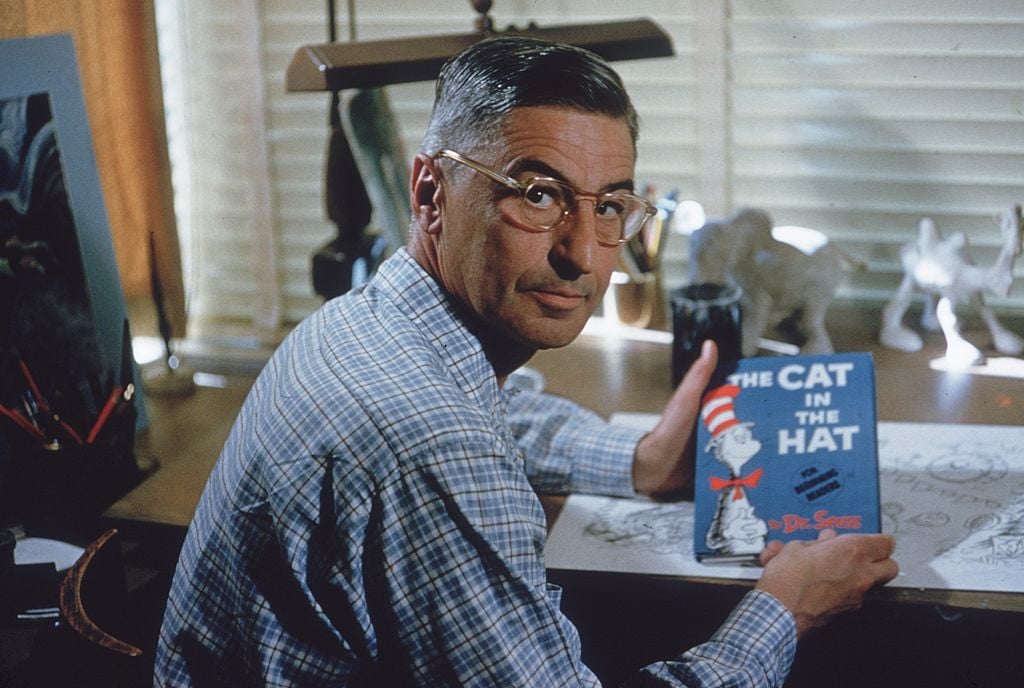
Six books by beloved children’s book author Dr. Seuss are being discontinued because of racist imagery.
“These books portray people in ways that are hurtful and wrong,” Dr. Seuss Enterprises told the Associated Press. Two popular titles, And To Think That I Saw It on Mulberry Street (1937) and If I Ran the Zoo (1950), are among those that will cease publication, the company announced today, March 2, the author’s birthday. The former includes an image of an Asian person in a stereotypical hat and eating from a bowl with chopsticks; the latter depicts African men wearing grass skirts.
“Ceasing sales of these books is only part of our commitment and our broader plan to ensure Dr. Seuss Enterprises’ catalogue represents and supports all communities and families,” the statement said.
The other four titles to be withdrawn are less well known: McElligot’s Pool, On Beyond Zebra!, Scrambled Eggs Super!, and The Cat’s Quizzer.
“Dr. Seuss Enterprises listened and took feedback from our audiences, including teachers, academics, and specialists in the field as part of our review process,” the company said. “We then worked with a panel of experts, including educators, to review our catalogue of titles.”
Awareness of offensive imagery by the author, born Theodor Seuss Geisel in Massachusetts in 1904, has grown in recent years.
A 1929 drawing featuring racist images of Black people and a racial slur came to auction in 2015 at a Los Angeles auction house. Two years later, a school librarian in Massachusetts refused a gift of several Dr. Seuss books from former First Lady Melania Trump in an open letter that called out And To Think I Saw It on Mulberry Street and If I Ran the Zoo, saying they were “steeped in racist propaganda, caricatures, and harmful stereotypes.”
That same year, several authors, including Mo Willems and Lisa Yee, boycotted a festival at the Amazing World of Dr. Seuss Museum over a stereotypical image of a Chinese man in a mural there, which was based on a drawing from And To Think That I Saw It on Mulberry Street. The museum later removed the mural.
Geisel evolved his views later in life, when he created his most famous books like The Sneetches and Horton Hears a Who, the authors pointed out in a joint letter. In 1978, he agreed to some revisions of And To Think That I Saw It on Mulberry Street, swapping the words “a Chinese man” for “a Chinaman,” as well as removing the character’s pigtail and changing his yellow skin.